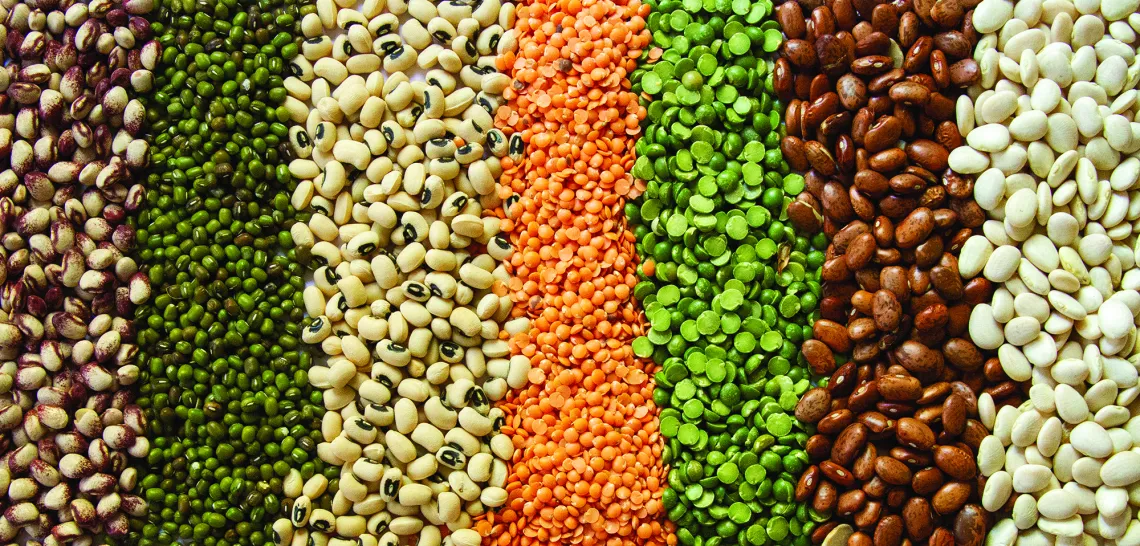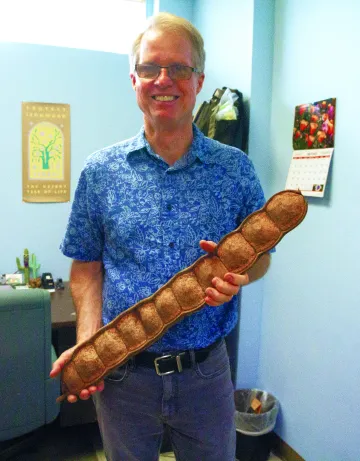Banking on Legumes

A freezer filled with thousands of cryogenically suspended legumes — stacks of Mason jars filled with mesquite, palo verde and acacia seeds line the deep-freeze shelves at the University of Arizona Campus Agricultural Center.
To some, it may look like the long-forgotten lentils and beans at the back of Grandma’s cupboard, but these legumes have a critical purpose. In the College of Agriculture and Life Science’s evaluation fields, they are propagated, cared for and studied by the team of the Desert Legume Program (DELEP).

Matt Johnson, program manager and curator, poses with an Entada gigas specimen, which boasts the world’s largest legume seedpod.
Legumes are incredibly diverse and dominate habitats in arid and semi-arid regions, making up over 10% of all plant species in Arizona. Worldwide, they are the third largest family of flowering plants, with nearly 20,000 species.
Some legumes, like clovers and alfalfa, fix soil nitrogen in natural and agricultural settings. Others, like soybeans, peas, beans, peanuts and lentils, grace dinner tables across the globe. Still others, like seeds from mesquite trees, are harvested to make flour.
Mesquite trees also provide shade in urban environments like the UArizona campus.
Seed banks are vital for global food security, as they provide plants for future propagation, and for conserving biodiversity in the face of habitat loss and a changing global environment. DELEP is designed for the long-term storage of seeds from species — especially wild types — selected for their tolerance to drought, extreme temperatures or the increased disease and pest outbreaks predicted to come with global climate change. For storage, seeds are first dried to a low moisture and then stored at minus 18 degrees Celsius.
DELEP has been run by a small but mighty team since 1989. Alongside the three dedicated staff members, DELEP volunteers have clocked nearly 41,000 hours propagating plants in greenhouses and fields, caring for plants and collecting seeds, working in fields in Tucson and Yuma, and assisting with laboratory research.
Since its inception, DELEP has developed an extensive collection of legumes from the southwestern U.S. and around the world. The seed bank currently has over 4,000 individual seed collections representing 1,409 species from 67 countries on six continents, making this a truly global collection. In 2011, DELEP became the third organization from the U.S. to have seeds placed in long-term storage in the Svalbard Global Seed Vault in the Norwegian Arctic. This backup storage aims to ensure the protection of biodiversity for future generations.
The legumes stored in DELEP’s seed bank today may be the food or medicine of tomorrow.
To learn more, donate or volunteer, visit: cals.arizona.edu/desertlegumeprogram.
